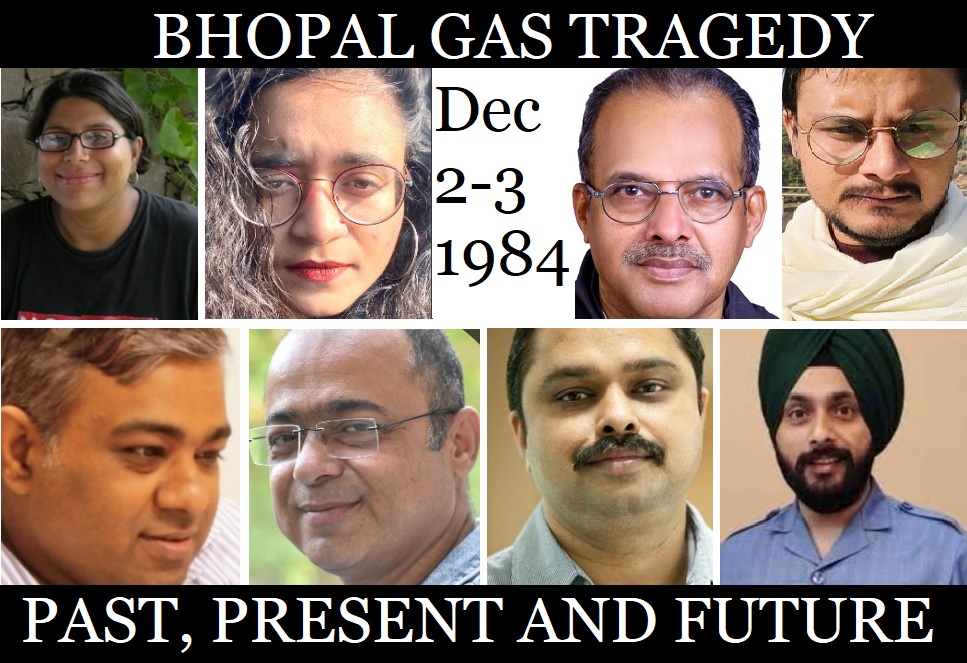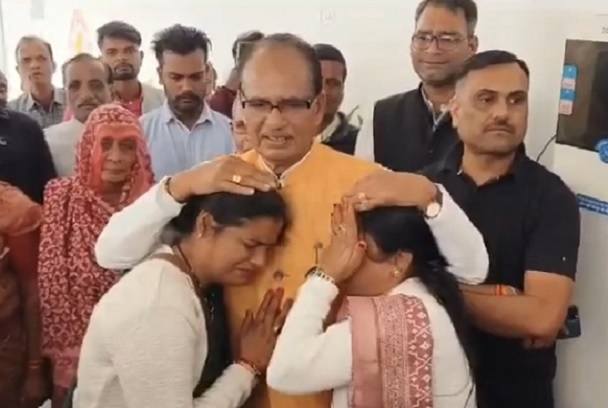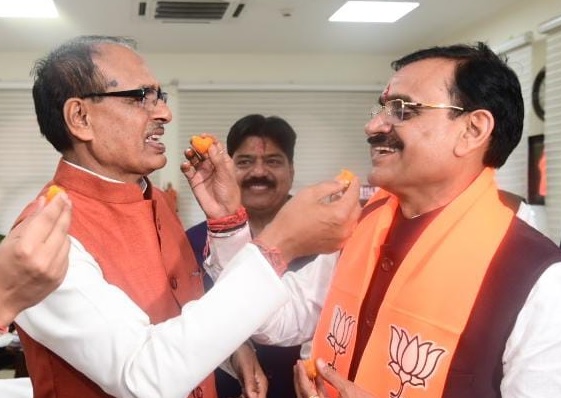Bhopal Gas Tragedy: Activists, journalists ponder over ways to redress victims' woes

Correspondent
NewsBits.in
BHOPAL: On the anniversary of Bhopal gas tragedy--the biggest industrial disaster in world history, a unique initiative was taken and activists, journalists apart from citizens concerned about the issue, discussed the situation in a Twitter Space.
ND Jayaprakash said that the Union Carbide had under-designed the plant at Bhopal and the refrigeration system was shut, just to save some money, while in their US plant the security systems were active and hence it was a clear case of criminal negligence.
"Even pressure gauges were not working and none of the three safety systems were in operational mode", he added. Jayaprakash regretted that there was no real justice, that the settlement was a farce, CBI didn't expedite the case and that both the major political parties viz. BJP and Congress were under pressure from Multi National Company (MNC).
Rachna Dhingra spoke at length over the mulitple issues affecting gas victims, ranging from poor facilities at hospitals to the contamination of ground water. She said that rehabilitation was a major issue and nothing came out. She gave an example of how claims are made but nothing happened on ground, for example, setting up of yoga centres up but no trainers were appointed.
Dhingra talked about the huge amount of toxic waste lying in the premises of the factory that still remains, and has not been removed, and thus the poison has seeped into the ground water. She said that a proper medical protocal was never devised and there are no specialists ranging from neurolgists to pulmonologists in these hospitals.
Shams Ur Rehman Alavi said that it was irony that despite a tragedy of such magnitude, the pain is remembered just on the anniversary--once a year. 'It is seen as Bhopal's past though it is not past, people are living with diseases, not getting proper treatment and need medicines and thousands of women including widows had to struggle so much for the meagre pension. This is present, the pain of tens of thousands of people in Bhopal even today.
As next generation, children born to survivors, were affected too, it is an issue that needs constant attention, focus. He said that, 'unfortunately, even the local media and newspapers avoid publishing reports about the issue, as if they are not concerned. In any city in the world that has seen something remotely similar, the tragedy is remembered so that people take lesson, but here it is not even talked about and the continuous sufferings are ignored", he added. "When people talk about an issue andpapers raise it, then there is focus and pressure on leaders to act, unfortunately, there is a strange apathy in Bhopal, especially, in echelons of power regarding the plight of victims in the same city", Alavi said.
Priyanka Dubey recalled how she had seen the women survivors protest and raise the issues of poor compensation and the injustice for years. "I was in school, when I often saw them leading marches, holding protests, year after year, their hair turning silver, yet, they didn't get justice".
She said that while activists raised the issue, successive governments and the society seemed to have less empathy towards the problems of the victims, despite the horrific nature and the extent of the tragedy. "And, that's not the end of the story, in fact, illegal drug trials were also conducted on the gas victims", she said.
Kashif Kakvi who hosted the Twitter Space, spoke on different aspects of the tragedy, ranging from the dubious role of certain politicians to the failure of administrative class and legal system. "Everyone was aware about the presence of toxic waste and how it contaminated water but what steps were taken to remove it?", he asked.
Kakvi gave several instances to show the extreme insensitivity of the leaders, ironically, most of whom were politicians born and brought up in Bhopal, and yet having little sympathy for victims. "Once when the victims went to a politician's bungalow, asking him to drink the water, they had to face action", he recalled.
Shahroz Afridi said that after coming to Bhopal, he visited the gas affected areas, saw the plight of people and realised how much suffering was there. "Poverty exacerbates everything and here, people didn't get proper compensation or any support in terms of jobs or assistance".
Afridi said that it was a colossal failure on part of different agencies and hence it needed proper study in top institutions--legal and management, that how institutions failed to ensure justice. "I found it perplexing how within a couple of decades, there was indifference in Bhopal towards the tragedy".
Aseem Shrivastava said that it was unfortunate that the issue was just raised once a year--on anniversary of the gas tragedy. "There must be regular focus, constant reporting and efforts to redress the issues", he said. Aseem recalled how middle-men had appeared all over the city, when the Lok Adalats were dispensing compensation claims.
"The victims were poor and many were unlettered, unable to fill the forms, and often these middle-men would ask for a certain amount from the victims' meagre compensation amount". The gas disaster had resulted in death of more than 15,000 people and affected over half-a-million people.
Dr Satwant Singh Rissam said that Bhopal gas tragedy and it's aftermath was a case of failure of legal as well as political system. "As law students, we studied it. This was a case of criminal neglience and unfortunately there was no justice for lakhs of people", he said. The role of different political parties came under scrutiny too.
Speakers recalled the role of late Abdul Jabbar's role as the leading activist, who took to streets from the beginning, fought legal battles and kept the issue alive for nearly 35 years. Himself, a gas victim, he remained at the forefront and his petitions led to setting up of institutions apart from his regular interventions and his extraordinary efforts in ensuring that patients get treatment.









